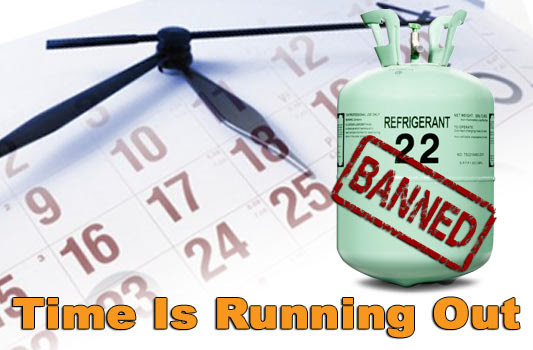What Does the R-22 (Refrigerant) Phase-Out Mean for Your HVAC System?
January 16, 2025

HCFC-22, commonly known as R-22 freon, has long been used as an efficient, non-flammable, and non-toxic refrigerant. In recent years, this popular refrigerant has been identified as an ozone-depleting substance (ODS) and subject to legislation. Due to its ozone depletion potential (ODP) and a global warming potential (GWP), all HCFCs have been designated “Class II” ODS and subject to phase out per the Montreal Protocol and U.S. Clean Air Act.
The process of ending the U.S. use of R-22 freon refrigerant began in the 1980s. Legislators recognized that R-22 could not be eliminated overnight without severe economic impacts to the private and public sectors. The process is now nearing its completion in 2020. As of January 1, 2020, the production, importation, and installments of all R-22 will be illegal throughout the U.S. Homeowners who have an older AC unit need to be aware of what this means for them.
As a homeowner, whether or not this change will affect you depends on the age of your home’s AC system. The US Environmental Protection Agency (EPA) has put increasing pressure on manufacturers to reduce the production and importation of R-22, with a goal of reaching a 99.5% reduction rate by 2020. If your unit was replaced or installed within the last 5 to 10 years, you are likely to have a system that uses R-410A, which is a newer acceptable type of refrigerant.
In the case of AC systems installed before 2010, it is likely that these units use R-22 refrigerant to operate. In most cases, you can determine the age of your unit by looking at the serial number. Usually the first four digits of the serial number indicate the date of manufacture. If you are unsure of how to determine the age of you unit, Hauser Air will be happy to help.
If you do have an older R-22 AC unit, now is the time to plan your home’s transition to a new compliant system. While freon will be available for some time even after the ban is imposed, the supply will be limited and likely to become very expensive. In some cases, the installation of an R-410A converter will be an option. This retrofit could solve the problem for some specific units, but not all.
While you may continue to use an R-22 AC unit even after the ban, be aware that it will inevitably need service or repair at some point in the future. Though maximizing the service life of your current unit may seem sensible, taking a proactive approach to replacement could spare you the headache and expensive of an emergency down the road.
Hauser Air is highly knowledgeable and ready to assist you with determining the best options for your AC system and home comfort needs. Contact us today!
